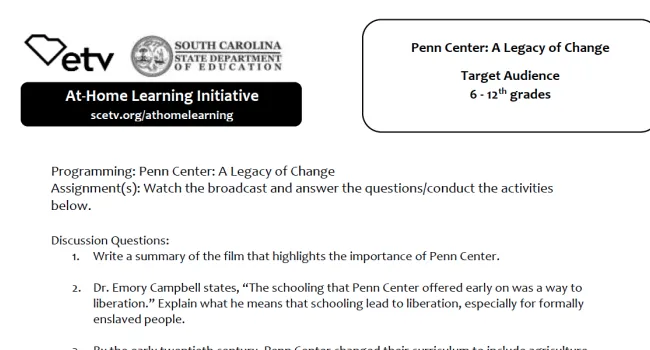Penn School closed its doors in the late 1940s and redirected its efforts to address social injustice. 1964 was the height of the civil rights movement. Dr. Martin Luther King. Jr. and his group were going throughout the country holding workshops, meetings, and staff retreats. King knew about the Penn Center, and because a lot of people who worked in the movement were from Charleston and South Carolina, they selected the Penn Center as a meeting place. It was one of the places where Blacks and whites could meet together in peace and harmony.
When the Voters Registration Act of 1965 was passed, Penn was very involved in getting people to register to vote.
Other hardships began facing community members. When land loss became an issue, people turned to the Penn Center for help. Part of Penn's mission is to preserve and promote the Sea Island history and culture. The root of all of that is land. Beaufort's land was becoming a national commodity. People were looking to come to Beaufort, and while residents saw swampy land, people from outside were looking at the land as waterfront property. Unfortunately, people were taking advantage of the poor residents. Penn started a land retention program that included how to deal with heirs' property, how to make a will and how to hold on to owned property.
An act of Congress made sure the Gullah culture will not be forgotten. The Gullah/Geechee National Heritage Act was passed by Congress in 2006. It was introduced into the United States Congress by Congressman James E. Clyburn. The act covers a National Heritage Area, which stretches from Wilmington, North Carolina all the way to Jacksonville, Florida, which has been populated by African American and Gullah/Geechee people for the last 300 years.
Resources
You need to be logged in to listen to view this content. Create an account now; it's quick, easy, and free!
Log In to View

